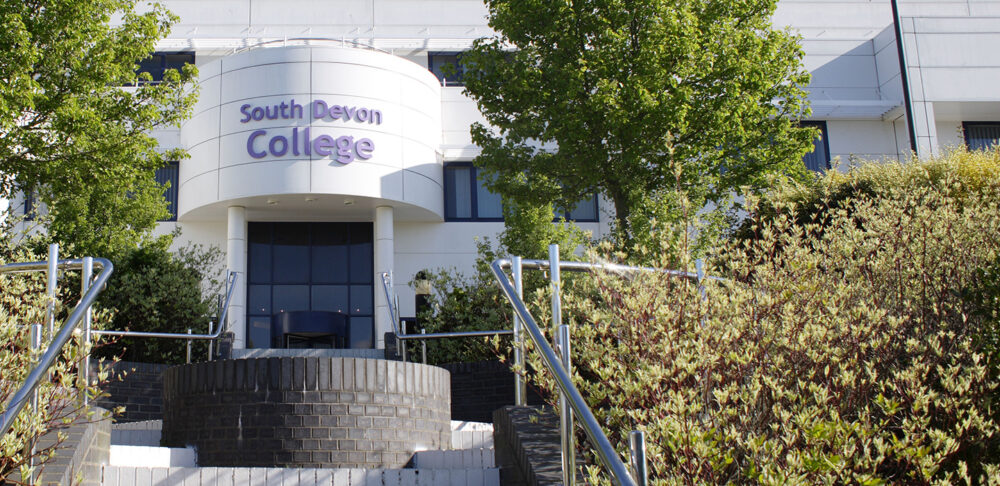A college in financial intervention has turned its deficit budget into a surplus after a “significant restructure” that resulted in more than 60 job losses, according to the FE Commissioner.
In spring this year, South Devon College (SDC) sought emergency funding from the government after “depleted” cash reserves left it with only three working days of operating cash.
The college has since borrowed £1.5 million from the government and made redundancies equivalent to 61 full-time employees, saving about £2 million per year on staff costs.
This was against a savings target of up to £2.75 million through up to 65 redundancies from its staff body of nearly 700.
A spokesperson for SDC said the college is “on track” to deliver a small surplus this year. It has an overall income of about £36 million.
The FE Commissioner’s assessment – completed in July but only published today – said SDC’s financial reporting suffered from “errors and delays” that exposed an “urgent” need to integrate its internal reporting systems and build “closer working relationships” between teams.
Issues included failing to classify capital grants as “restricted cash”, “erroneous” assumptions about income that had to be written off, and late reporting of a budget shortfall in apprentice numbers.
Its reserves are now “depleted” after repeated use to cover the college’s £1 million per year capital costs.
By the time the college asked the government for emergency funding in spring, reserves were so low that it “could not afford to restructure”.
But the college’s audit committee, which oversees risk management, only raised financial risk levels to ‘red’, the highest rating, in March this year.
The FE Commissioner’s benchmarks suggest a college aims to have more than 40 adjusted cash days in hand.
Before reclassification, SDC would have used its overdraft facility to manage low cash balances and restructuring costs, the commissioner noted.
The organisation has been told to carry out a “full review” of its finance team’s structure and skills mix, which has been overseen by a senior director of finance responsible for both operational and strategic management.
Plans to hire a head of finance were also “shelved” in 2024 due to “budgetary constraints”, the commissioner said.
How did it get here?
Governors told the commissioner’s team that financial pressures “commenced” due to the cost of the college’s £17 million ‘Hi Tech & Digital Centre’ in Paignton, which has had a “slower than planned” return on investment “due to Covid”.
The board has reportedly “reflected” on whether funding capital costs from cash reserves, which “weakened” college finances, “should have stopped” earlier.
Apprentice numbers have also “declined” since 2022, with low retention “partly” due to “issues” affecting learners who need “additional learning support and SEND”.
The college sought the FE Commissioner’s advice on curriculum efficiency and financial sustainability in 2023, which resulted in the use of a new planning tool, but work on planning for apprentice numbers in June each year is still “too late”, the assessment found.
A key “gap” in the SDC’s business planning process was a lack of integration between the financial plan and HR systems.
This was done for the first time when planning 2025-26, helping to identify most of the “curriculum staffing efficiencies” in the restructure.
What now?
The FE Commissioner’s team set out eight recommendations for SDC to be implemented in September and October this year, including a three-year financial strategy that “aligns” its vision, ambitions, cashflow, capital expenditure forecasting, and scenario modelling.
Other actions included ensuring “adequate and appropriate” resourcing of the finance team and taking a “whole college approach” to delivering and owning financial sustainability.
Monthly finance updates for governors and senior leaders need “further development” to show spending compared to the original and “reforecast” budget, so issues can be analysed “on a timely basis”.
SDC’s leaders should also agree an internal communications strategy to improve “staff morale”.
A college spokesperson said it has taken “decisive action” to rebuild its cash reserves since the intervention process began.
They added: “Following a recent stocktake visit, the [FE Commissioner] team highlighted visible progress on single improvement plan actions and noted that students expressed confidence in their experience at the college.
“We acknowledge areas for further development, including strengthening finance team capacity, and improving communication of our strategic plans and milestones.
“These priorities are being addressed as part of our ongoing improvement work.
“We remain focused on delivering high-quality education and training, and are confident that our recovery plan will strengthen our position for the future.”
















Lots of failings of leadership but no change in leadership. Interesting from the last accounts that the principal had a £12000 pay rise.
Interesting to blame Covid for a building not giving a return on investment, maybe too munch money has been spent on fancy buildings that seem to be full of atriums probably costing a fortune to heat.
I feel sorry for the poor staff – the ones left.
I agree, I’ve often wondered why colleges cant focus on functional buildings that deliver for learners rather than fancy looking spectacles of buildings that always run over budget from my understanding. I hope the board get a grip of senior pay as that seems to be where the issues sits
“…“erroneous” assumptions about income that had to be written off, and late reporting of a budget shortfall in apprentice numbers.”
I would read this as the Principal sets unrealistic targets to be able to present a non-deficit budget to governors, then either refused to accept the reality of the shortfall or staff were too scared for their jobs to tell him the reality.
But of course easier for the governors and Principal to blame the staff for late reporting and COVID. The cut and paste annual reports still blame the war in Ukraine too.